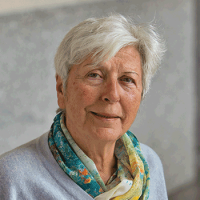Ethiopia: Can the Future Prevail?


On the heels of a 17-year civil war between the military junta, the Derg, and anti-government forces, the Tigrai People’s Liberation Front (TPLF) and the Ethiopian People’s Democratic Movement (EPDM) joined to form the Ethiopian People’s Revolutionary Democratic Front (EPRDF)—a multi-ethnic alliance that ultimately overthrew the Derg and gained power in 1991. Following the civil war, Prime Minister Meles Zenawi worked to develop the economy of Ethiopia, adopting economic policies inspired by East Asian countries, which resulted in infrastructure development, investments in education, and improvements in healthcare. Ethiopia’s economy has continued to move in an upward trajectory following Prime Minister Meles Zenawi’s policies. Even more so, the appointment of Prime Minister Abiy Ahmed and his economic reforms offer both promise and hope for the nation.
However, Ethiopia’s present crisis—ethnic clashes leading to the displacement of millions of citizens—is a political downside of the economic success it encountered. Ethiopia’s economic growth is battling obstacles related to ethnic federalism, which was established as an attempt to counter ethnic nationalism. In this paper, Dr. Marina Ottaway analyzes the successful economic policies of Prime Minister Meles Zenawi and the rapid growth following the civil war. Dr. Ottaway outlines how Ethiopia’s political history of ethnic federalism influences the current political and economic dynamics, as well as their implications for the future.
Author

Former Senior Research Associate and Head of the Middle East Program, Carnegie Endowment for International Peace

Africa Program
The Africa Program works to address the most critical issues facing Africa and US-Africa relations, build mutually beneficial US-Africa relations, and enhance knowledge and understanding about Africa in the United States. The Program achieves its mission through in-depth research and analyses, public discussion, working groups, and briefings that bring together policymakers, practitioners, and subject matter experts to analyze and offer practical options for tackling key challenges in Africa and in US-Africa relations. Read more




